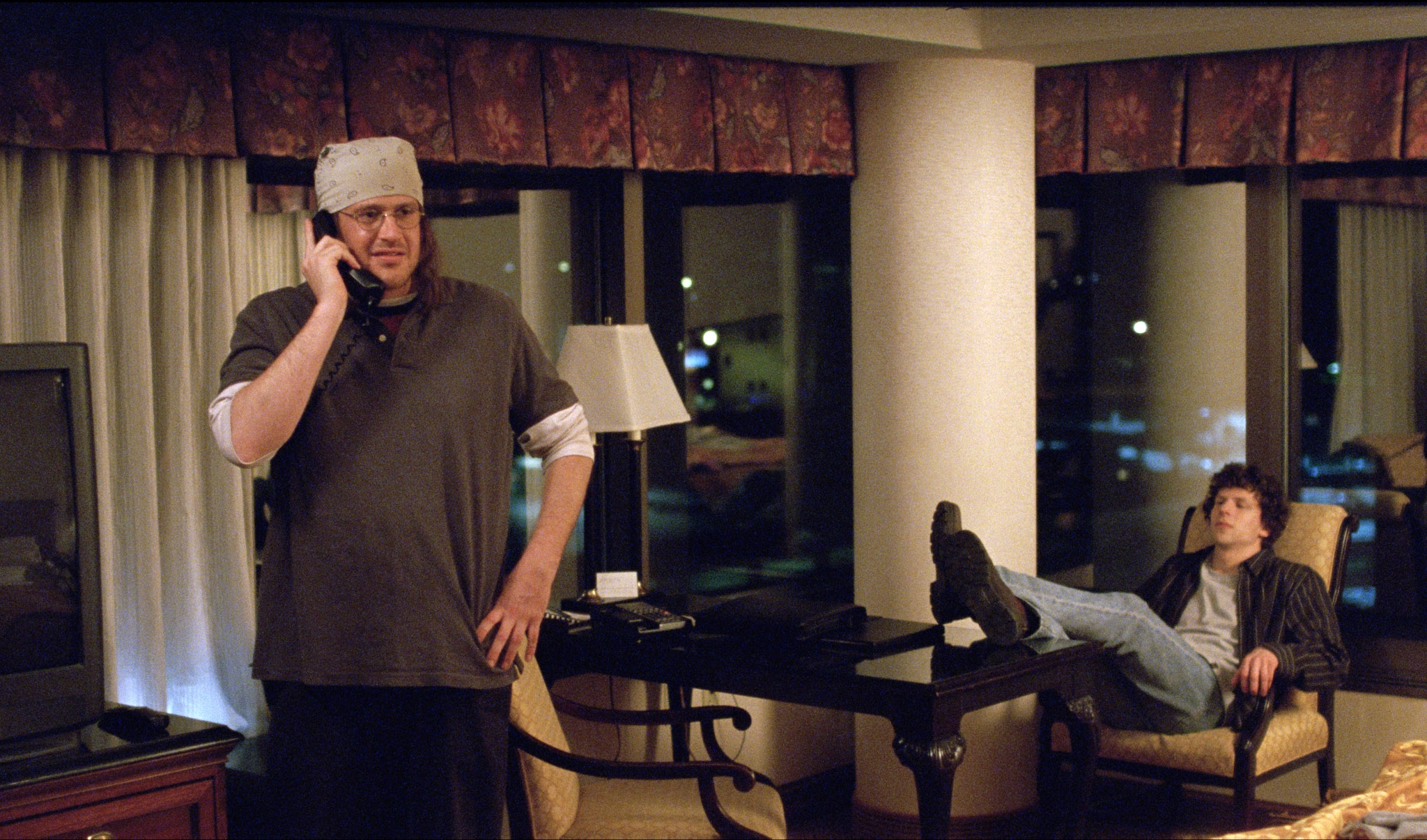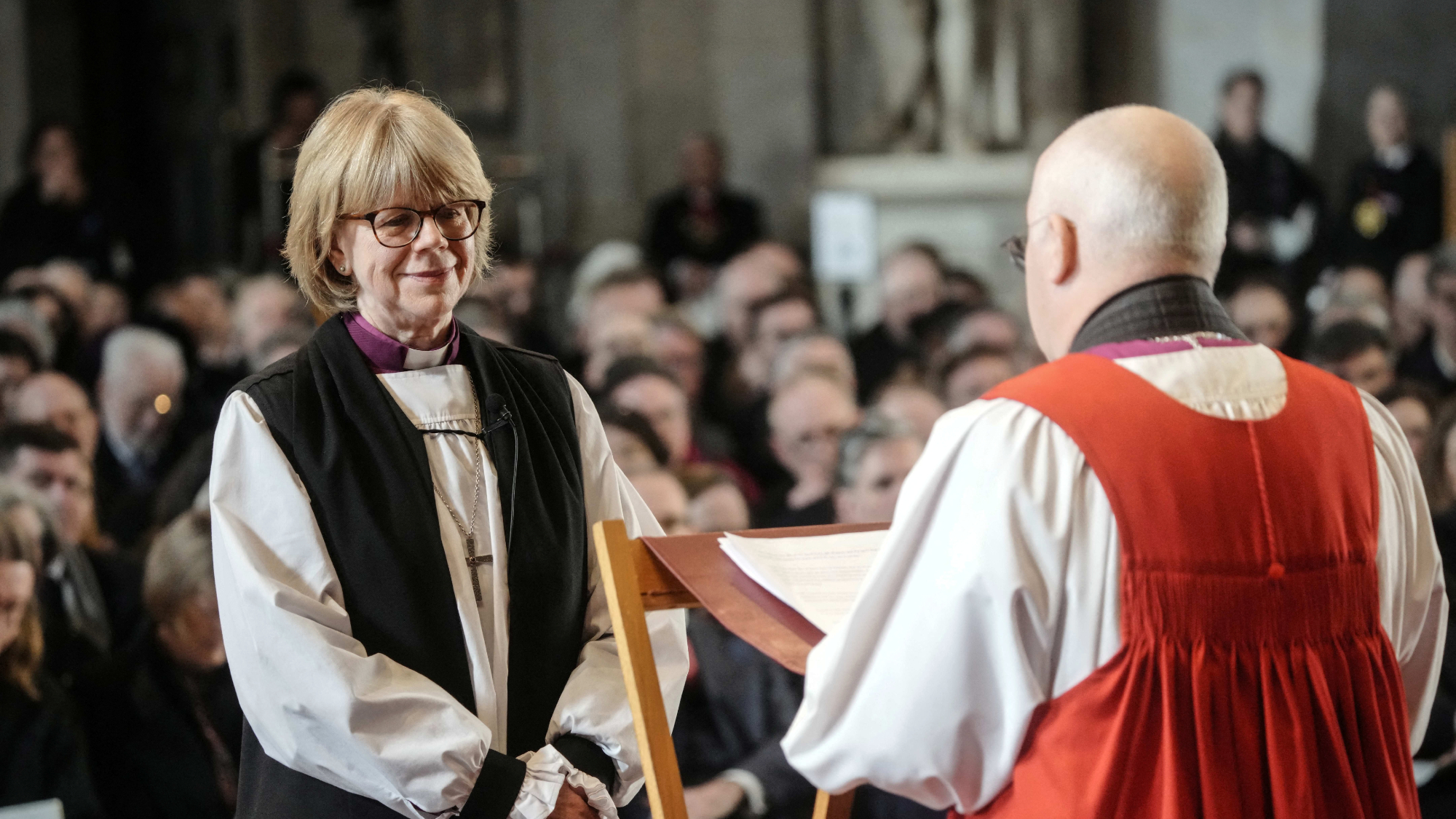When does a tribute become a betrayal? Grappling with the David Foster Wallace movie The End of the Tour.
The new movie, which chronicles five days in the life of the late author, has won critical accolades — and scathing notices from those who actually knew him


Let me get my own review out of the way upfront: I liked The End of the Tour. I thought the film's two leading men, Jesse Eisenberg and Jason Segel, were both excellent (though the Oscar buzz centered on Segel's performance is extremely premature). And while there were occasional flourishes that made me a little queasy, I thought the movie was respectful to its subject, David Foster Wallace, successfully resisting the urge to downgrade his enormously complicated literary legacy to the fortune-cookie wisdom to which it has been increasingly reduced.
But I'm less interested in The End of the Tour itself than I am in the heated debate that has grown up around it — a debate that largely centers on the question of whether the movie's mere existence is a tribute or a disservice to Wallace. In general, I try to take every movie — even a movie based on true events — on its own merits, with the quality of the film as a work of art outweighing the importance of its historical accuracy. But there are some things you might want to know as you weigh whether to see The End of the Tour.
The David Foster Wallace Literary Trust, which is headed by his widow Karen Green, is unequivocally opposed to The End of the Tour. "This motion picture is loosely based on transcripts from an interview David consented to 18 years ago for a magazine article about the publication of his novel," said a statement jointly attributed to the trust, Wallace's publisher, and his family. "That article was never published and David would never have agreed that those saved transcripts could later be repurposed as the basis of a movie." If that's not enough, you can go back to Wallace's own words after a 1996 appearance on Charlie Rose, which he regretted: "I wanted to stay on my side of the screen."
The Week
Escape your echo chamber. Get the facts behind the news, plus analysis from multiple perspectives.

Sign up for The Week's Free Newsletters
From our morning news briefing to a weekly Good News Newsletter, get the best of The Week delivered directly to your inbox.
From our morning news briefing to a weekly Good News Newsletter, get the best of The Week delivered directly to your inbox.
How, then, did David Foster Wallace the person become David Foster Wallace the movie character? The End of the Tour owes its existence to a kind of legal quirk; because Wallace consented to an interview in the mid-1990s — an interview that was never published, in any form, until after his death — the rights to this specific material belong not to the trust, but to David Lipsky, the journalist who recorded it. Of course, no one is going to see The End of the Tour because of David Lipsky — a blunt fact that the film implicitly acknowledges by depicting the seething jealousy that develops in Lipsky (played by Jesse Eisenberg) over the course of the film. The film's great unspoken irony is that the real-life Lipsky — a novelist and journalist who won a National Magazine Award in 2009 — will probably be most remembered for a fictionalized version of the five days he spent with another, more famous writer.
Of course, objecting to The End of the Tour in principle is different than objecting to The End of the Tour as a movie. The most educated and vocal detractor in that camp is Glenn Kenny, a film critic who was also both editor and friend to Wallace. Kenny hated The End of the Tour, which he found lacking as both a tribute to Wallace and a film in general. In his review — which openly acknowledges his inability to detach from his personal relationship with Wallace — Kenny says that The End of the Tour "left [him] so angry [he] actually had trouble sleeping the night [he] saw it."
Those blunt, uncompromising dismissals might be all the reasons you need to stay away from The End of the Tour. But if honoring the legacy of Wallace is your primary concern, there are also some points in The End of the Tour's favor. Wallace had other friends who were moved and impressed by The End of the Tour — and, more to the point, think Wallace would have enjoyed it. "I think David would have appreciated the movie," said Charles Harris, who hired Wallace to teach at Illinois State University, in an interview with Indiewire. "They did not try to exploit David. They tried to get him as he was, the best they could."
For those primarily concerned about The End of the Tour's accuracy, consider this: The movie's script was adapted from David Lipsky's nonfiction book Although Of Course You End Up Becoming Yourself, which was derived from hours and hours of recordings Lipsky made as Wallace's companion on the Infinite Jest book tour in 1996. That means that the vast majority of lines spoken by Wallace (Jason Segel) were spoken word-for-word, in real life, by the real Wallace.
A free daily email with the biggest news stories of the day – and the best features from TheWeek.com
That might be the reason some of the people who actually knew Wallace find Segel's performance to be something closer to an eerie and off-key act of ventriloquism. Glenn Kenny called out Segel's "ghoulish self-aggrandizement" — a phrase he admitted, on his personal blog, to crafting in the hopes that it "sticks like shit to the bottom of Jason Segel's shoe throughout his shitty Oscar campaign."
It's worth noting that among those who didn't personally know David Foster Wallace — which will, presumably, be the vast majority of the film's viewers — The End of the Tour has received extremely positive (and often rapturous) reviews since its January premiere at the Sundance Film Festival. It's impossible to separate The End of the Tour from the ongoing development of Wallace's legacy, because the film makes Wallace's attempt to grapple with his place in culture one of its primary subjects. Still, there's certainly a case to be made that the film should be judged not for how accurately it captures the real-life Wallace, but for how well it stands on its own as a movie.
The cultural reaction to The End of the Tour is the kind of thing you wish Wallace was around to weigh in on. It's a testament to the impact Wallace had that such a small, unassuming movie — basically two guys driving around the Midwest talking — has attracted so much controversy. With the exception of a misguided framing device that bookends the movie with two on-the-nose scenes set after Wallace's death, this is as microcosmic as it gets. The End of the Tour works hard to honor Wallace's legacy, but it makes no claims to being a definitive portrait of Wallace's life and career — just a brief snapshot of a particularly eventful week in his life.
When the dust settles, I suspect The End of the Tour's ultimate legacy will be as a kind of "David Foster Wallace 101" — just enough of an introduction to Wallace's unique worldview to inspire viewers to dig into his actual writing. ("This is Water," his now-famous graduation speech at Kenyon College, offers a similar gateway.) With that in mind, I think it's worth returning to the statement released by The David Foster Wallace Literary Trust, which said it would "prefer that David be remembered for his extraordinary writing." If nothing else, it is likely that in the years to come, The End of the Tour will provide one more avenue through which people will be drawn to it.
Scott Meslow is the entertainment editor for TheWeek.com. He has written about film and television at publications including The Atlantic, POLITICO Magazine, and Vulture.
-
 ‘Implementing strengthened provisions help advance aviation safety’
‘Implementing strengthened provisions help advance aviation safety’Instant Opinion Opinion, comment and editorials of the day
-
 How Manchesterism could change the UK
How Manchesterism could change the UKThe Explainer The idea involves shifting a centralized government to more local powers
-
 Church of England instates first woman leader
Church of England instates first woman leaderSpeed Read Sarah Mullally became the 106th Archbishop of Canterbury
